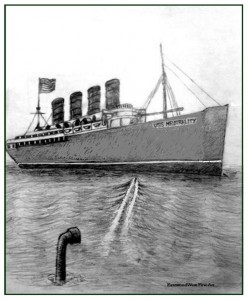I wonder whether my wife gets more satisfaction from making our yard bloom or making me work. Over the last weekend Karen fully exploited my vanity, docility and cheapness. Even at 57, I still have delusions of virility, which I manifest by mowing the lawn. In the suburbs, any status-conscious homeowner is expected to delegate that chore to a lawn service. While I have a liberal’s sense of shame over the Mexican War (and since the 2000 election would gladly return Texas to its original owners), I don’t intend to pay $50 a week merely to atone for the Treaty of Guadeloupe-Hidalgo.
I now get dirty looks from the passing lawn crews and my neighbors regard me as subversive. Indeed, some of the local children can’t believe that a homeowner would mow the lawn. Once, teenagers were going door-to-door to raise money for a high school methadone clinic or some other fringe benefit that my exorbitant property taxes don’t completely subsidize. I was toiling in the yard, pushing the mower. The teenagers walked past me and rang the front door. I didn’t say a word; after all, I wasn’t presumed to speak English. If someone should ever address the mowing peasant in Spanish, I am ready with this reply, “I am sorry, but I had to read Cervantes in translation.”
My husbandry is not limited to mowing because my wifery is not limited to lawncare. Karen is an obsessed gardener. I imagine that she read “Lady Chatterley’s Lover” only for landscaping hints. Of course, in creating a garden Karen needs to cultivate me. She cannot simply order me to rake, dig and lug; I am too fond of the French Revolution to tolerate that. No, Karen’s stratagem is to ask my opinion. “Do you think that we need to dig up this flower bed? Do you think that we should weed the lawn?” My opinion invariably is that I have no choice, but serfdom always is more cheerful when you pretend to volunteer.
I must confess to an embarrassing relationship with weeds. One of them seduced me. Several years ago, I noticed a pretty plant with a brocade of white flowers growing in our lawn. Karen identified it as Queen Anne’s Lace and she must have assumed that I would mow the weed to oblivion. However, I let it survive. More than the plant’s charming look, I felt such sympathy for the original Queen Anne. The Stuarts usually were stupid but attractive: imagine a dynasty cast by Aaron Spelling. Anne, however, was begrudged the good looks and cheated in every other way too. The dull, miserable woman outlived her children, was exploited by politicians and betrayed by every friend but her brandy. I could not remedy 18th century medicine, politics or morality, but I could spare the plant that bore Anne’s name. Unfortunately, in a month, Anne had spread throughout our lawn. Her namesake had never been that prolific. I found myself yanking two-foot stalks to atone for my knowledge of history and ignorance of weeds.
My compassion has never extended to dandelions and, like any other homeowner, I wage eternal jihad against the yellow intruders. The war has steadily escalated. I began with personal combat, using a knife to dig up each weed. The sight of me squatting on the grass and stabbing the lawn may not been a testimonial to my sanity. I ended up with a lawn pitted with knife wounds, but it was dandelion-free. Of course, my morbid satisfaction didn’t last. Any surviving tendrils would resurrect the weed, and the dandelions would sprout back, thicker and surlier.
In the next phase of the war, I resorted to a socially responsible herbicide. Its all-natural, biodegradable, holistic ingredients were supposed to persuade or shame the dandelions into leaving our lawn. Tibet has used the same approach in dealing with China, and with the same results. So, this year I abandoned all regard for the Geneva Convention and bought a 48-pound bag of death. Its advertising could have been translated from a Nuremberg Rally, promising me a solution to all alien seeds while nourishing a race of super-grass.
My herbicidal euphoria ended when I took the time to read the back of the bag. The warnings were much longer than the instructions. Skin grafts and amputations were possible consequences, and users should expect to remove dead pets from the lawn. Karen began to think that the lawn was not worth the dangers; where is Lady Macbeth when I need her? According to the warnings, the herbicide was dangerous to touch or smell, and it could corrode metal and concrete; yet, it was also good for grass. How could it be, unless it was grass’ vengeance on mankind?
Of course, I still used the herbicide. Captain Ahab would have understood. I did make a few concessions to survival by wearing a safety mask, gloves suitable for handling uranium, and two sets of work clothes. For all these precautions, the product may still kill me, but at least it will get the dandelions first. While awaiting my demise, I can keep busy with pruning, raking, digging and more mowing. And Karen has been asking my opinion about the mildew in a shower stall. Husbandry is not limited to yardwork.
